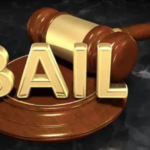What Happens If I Breach Bail in New South Wales?

A Sydney real estate agent was sent to the Metropolitan Remand and Reception Centre, also known as the MRRC or Silverwater Prison, in March 2023, after being caught drinking alcohol in breach of his bail conditions, which related to having attacked two women, one with a samurai sword, during a seven-day cocaine and alcohol-fuelled binge.
At the time he was found to be in breach of bail, the prominent agent had pleaded guilty to one count of assault occasioning actual bodily harm and another of recklessly causing grievous bodily harm and he was then awaiting sentencing, which was to take place later that same month.
The bail breacher appeared before the NSW District Court regarding the matter, and the judge noted that it was “a bit of a worry” that the man in his mid-40s had been caught on camera in a bottle shop, but he then allowed him to be released back into the community to continue his treatment.
But he wasn’t guaranteed this outcome. Breach of bail can see an accused or a convicted person yet-to-be-sentenced having their bail revoked, meaning being placed on remand, or their conditions can be varied or added to, no action can be taken or release under the same conditions can occur.
With the District Court judge having decided to vary bail his conditions, the agent had to check into a rehabilitation clinic in Sydney’s eastern suburbs, and if he was to arrive at that facility and find he couldn’t be admitted until the following day, he was to spend the night at his brother’s place.
What is bail?
Section 7 of the Bail Act 2013 (NSW) outlines that bail “is authority to be at liberty for an offence”, meaning bail is permission to remain living in the community after being charged with a crime and made to stand trial for it.
Anyone charged with an offence in NSW can be granted bail, and if they are “entitled to be at liberty”, they’re permitted “to be released from custody”.
However, if an individual is denied bail, then they can remain in custody until their trial and sentencing: this is called being on remand.
Bail can be granted by the NSW police after an arrestee is charged at the police station. But if an individual is bail denied, then they are promptly taken to the nearest NSW Local Court to appear before a magistrate to decide whether they should be granted bail.
From the accused’s point of view, being granted bail means officially promising to attend court on the next scheduled date. It also means that if the court applies any conditions, such as the stipulation that prohibited the real estate agent from using drugs and alcohol, they will be abided by.
When can bail be granted?
Two tests apply in terms of whether an accused is granted bail. The first is the show cause test, which means that a number of serious criminal offences are automatically refused bail. These ”show cause offences” are listed under section 16B of the Bail Act.
And this is an ideal point to have an experienced criminal defence lawyer representing an accussed, as they can assist in showing cause as to why their client should be trusted on bail, as well as arguing why they should be found to pass the second test: the unacceptable risk test.
The unacceptable risk test requires that the court is assured that the accused doesn’t pose any of the main bail concerns, which involve appearance in court on scheduled dates, not committing any further offences or endangering victims or the community or interfering with witnesses or evidence.
Is there a second chance at bail?
On bail refusal, the accused then has second or subsequent chances to apply, under section 74 of the Bail Act. These arise when a change of circumstance occurs or new evidence becomes apparent or the person in custody had represented themselves on first attempt.
So, this is an good time to get in contact with an experience bail application lawyer, as such a lawyer can assist with lodging an application with the court, along with any proposed conditions, submissions, an affidavit, a report and character references.
Since 2022, however, section 22B of the Bail Act stipulates offenders who’ve been convicted of a crime will not be released on bail prior to sentencing if it is established that they will be sentenced to full-time prison, unless there are special or exceptional circumstances that show otherwise.
Obviously, in the case of the real estate agent, it was not established he would necessarily be serving time following his sentencing.
What sort of bail conditions can apply?
Division 3 of the Bail Act contains the conditions that apply to bail. These can involve requirements regarding conduct, security, character, accommodation, accompaniment, prerelease conditions, enforcement and electronic ankle monitoring.
Bail conditions relating to conduct can involve being required to attend court on a specific date, restrictions on communications with others, restrictions on locations, a mandated residential address, a curfew, the requirement to report at the police station and surrender of passport.
In terms of security, or a bail bond, a magistrate or judge assesses whether a security deposit is to apply to bail and what amount that should be. The individual who posts bail, known as the surety or guarantor, will be accessed if suitable to provide surety, usually via a criminal record check.
What happens if I breach these conditions?
A breach of bail can result in conditional release being revoked, meaning the accused is placed on remand. However, it can also result in no action being taken, a warning being issued, a fine being applied or even being sentenced to further imprisonment.
If a police officer notes an individual has breached bail in a minor way, they may take no action, or otherwise they may issue a warning. But if a serious breach has occurred, the individual may be issued with a court attendance notice (CAN) or be taken into custody and returned to the court.
The failure to appear in court is a breach that is taken very seriously. In fact, it is a crime to fail to appear in court without a reasonable excuse, which the accused must prove to the court. This is an offence that carries maximum penalties of up to 3 years imprisonment and/or a $3,300 fine.
If attending court, a magistrate or a judge will redetermine bail, as was with the case with the prominent Sydney real estate agent, and a good lawyer can be the difference between having bail revoked outright, or a variation in conditions being applied instead.
Going to Court?
If you or someone close have been arrested and are being held at the police station, or you’re planning on applying for bail after being remanded, call Sydney Criminal Lawyers anytime on (02) 9261 8881 to arrange to speak with an experienced criminal defence or bail application lawyer.






